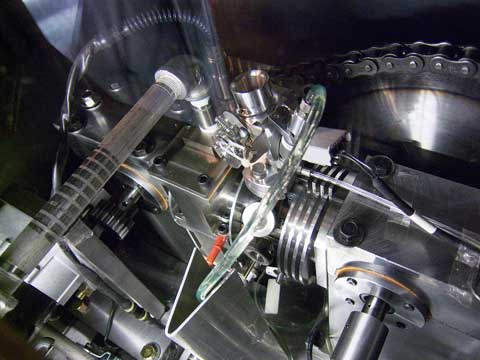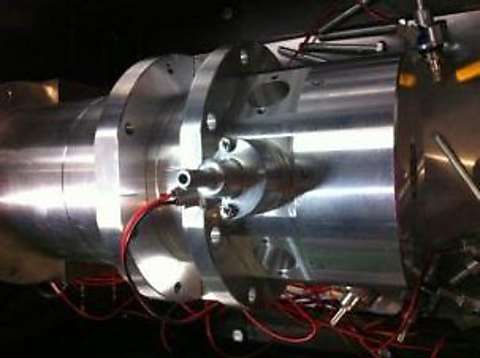Prof. Naitoh of the Faculty of Science and Engineering has discovered a new compressive combustion principle that can yield engines with the ultimate level of efficiency
Tue, Jul 9, 2013-
Tags
Professor Ken Naitoh of Waseda University’s Faculty of Science and Engineering (Department of Applied Mechanics and Aerospace Engineering, School of Fundamental Science and Engineering) and his associates have discovered a revolutionary energy conversion principle (new compressive combustion principle) able to yield stand-alone engines with double or higher the thermal efficiency potential of conventional engines, independent of their size. If engines utilizing this principle can be put to use in practical applications, it is believed that they could become innovations with the ability to solve today’s immediate environmental energy problems.
This new compressive combustion principle was formulated by Professor Naitoh through the development of a new thermofluid dynamics theory, as well as thought experiments, supercomputer simulations, and high-speed airflow experiments drawing on that theory. The fundamental principle is that while thermal efficiency can be raised by reaching a high compression ratio, achieved through pulsed collisions of multiple high-speed jets of an air-fuel gas mixture at microscopic regions in the central area of a combustion chamber, expanded uses and ranges of application were attained with the further addition of 3 new measures. This method is also considered to be lower in cost than batteries, as well as having possibilities for noise reduction and the potential to eliminate the need for cooling mechanisms.
 Prototype engine for automobiles |
 Prototype engine for aircraft |
If the effectiveness of this principle can be confirmed through combustion tests, it will not only open up the doors to new lightweight, high-performance aerospace vehicles, but would also lead to prospects of next-generation, high-performance engines for automobiles. The maximum thermal efficiency of present-day gasoline engines for automobiles is on the order of 30%, believed to fall to a level as low as 15% in states from idling to low-speed city driving. Therefore, if automobiles could be equipped with “low-cost, ultimate-efficiency engines,” reaching a stand-alone thermal efficiency of 60% or higher over a wide range of driving conditions, it is believed that a substantial fuel consumption superior to that of current hybrid system automobiles could be a reality. Furthermore, if such automobiles, equipped with these high-efficiency engines, could be used to generate power at individual households, it would open up possibilities for improving the total energy efficiency of our entire society (The photographs above are of primary prototype engines produced to confirm the new principle, at the beginning of combustion testing) .
These research results were announced in research papers at events including the spring congress of the Society of Automotive Engineers of Japan (JSAE) , held in May 2013, and the conference of the American Institute of Aeronautics and Astronautics (AIAA) , held in San Diego in June 2013, as well as in journals and magazines on science and technology.
Prof. Ken Naitoh
Waseda University, Faculty of Science and Engineering, Applied mechanics and Aerospace engineering, Professor, Dr. Eng. Naitoh proposes original fusion researches of engine and life: Ultimate efficiency engine learned from biological DNA structure (Fugine) , Application of extremophile for engine, Onto-biology, Morpho-psychological economics, and elementary particle theories.











